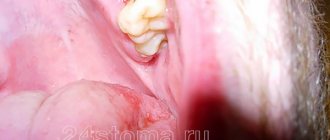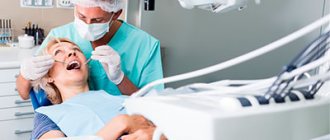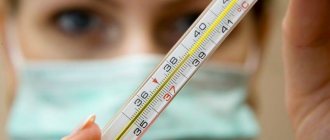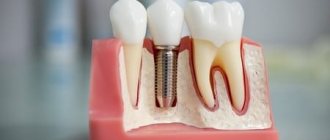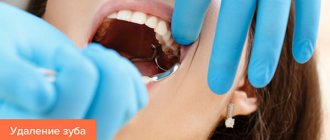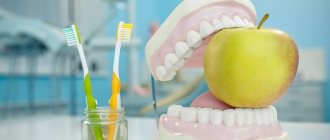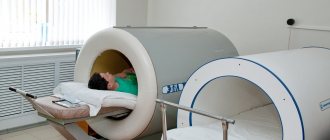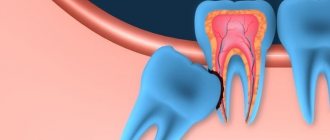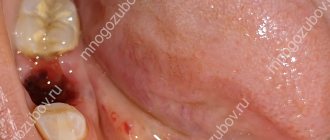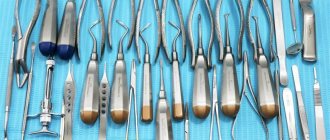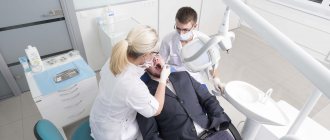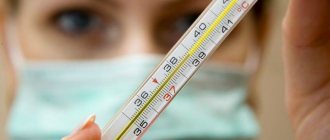Dental procedures always bring discomfort and inconvenience, especially when it comes to tooth extraction. Despite modern techniques and effective pain relief, the procedure is very unpleasant and painful. It does not last long, usually in a dental office, but the rehabilitation period is very important. To speed up wound healing and tissue restoration, you need to follow some rules. Ignorance and failure to follow basic precautions after tooth extraction can lead to complications.
How to behave immediately after tooth extraction
Tooth extraction is prescribed only in exceptional cases when it is no longer possible to do anything conservatively. Indications for extraction are gumboil, phlegmon, advanced periodontitis, osteomyelitis of the jaw, severe malocclusion, cyst, complete destruction due to injury, inflammation of impacted and dystopic wisdom teeth, tumor formations. Usually the operation is performed planned on an outpatient basis, sometimes urgent removal with inpatient recovery is required.
There is no need to be afraid of the removal procedure. Thanks to modern technologies and anesthesia, it is quick and almost painless. But it is very important to behave correctly immediately after the operation and maintain a gentle lifestyle and diet for some time.
During tooth extraction, tissue and blood vessels are inevitably injured. This leads to bleeding, which can be either minor or severe. First of all, to stop the bleeding, the doctor places a gauze swab into the hole. It should stop in 15-20 minutes, and the patient can go home. If the wound is serious or there are problems with blood clotting, local hemostatic agents will be needed.
Even if the bleeding stops quickly, it can start again. At home, you also need to apply sterile gauze swabs. In addition, in case of severe pain, it is allowed to take painkillers - Ketanov, Nimesil. Continued pain may indicate the development of inflammation - in this case, you should urgently consult a doctor. You may have to take antibacterial agents (antibiotics).
After surgery, swelling of the gums and cheeks often appears. To relieve hyperemia, cold is applied, for example an ice pack. The duration of the procedure should not exceed 10-15 minutes, otherwise the dental nerve may get cold. Under no circumstances should you apply warm compresses - this will lead to inflammation and bleeding.
Oral hygiene should be canceled on the day of tooth extraction. Starting from the second day, you can brush your teeth very carefully with a soft brush. In this case, the wound must be avoided. Hygienic procedures help cleanse the gums and speed up healing. Rinsing your mouth with alcohol and rinses is prohibited. You can make non-hot baths with herbs (sage, chamomile) at the rate of 1 tablespoon of dry mixture per glass of boiling water.
These simple rules must be followed so that the wound heals quickly and an implant can be placed.
Possible complications if you ignore the ban
- The blood layer is washed away, exposing the open wound. This leads to the entry of harmful bacteria and all kinds of infections.
- Heavy bleeding may begin that will be difficult to stop.
- Body temperature rises, general physical weakness is observed.
- Osteomyelitis may develop.
- There is a risk of sepsis (blood poisoning).
If you want to find out how old wisdom teeth grow, whether they should be removed, and what the consequences may be if you ignore the recommendations, then be sure to make an appointment with a dentist.
Why can’t you eat after tooth extraction (removal)?
Tooth extraction involves serious intervention in the dentofacial apparatus. Any additional injury in the first hours after surgery is strictly prohibited. This also applies to food, which, if it gets into the wound, can cause pain and inflammation.
In addition, you can’t eat because:
- pressure on the injured gum causes bleeding and severe pain;
- hot, cold food irritates tissues, which leads to swelling, inflammation, bleeding;
- Along with food, microbes enter the oral cavity, which instantly provoke an inflammatory process in the open socket
- Efforts to chew food bring additional discomfort, which, in turn, slows down healing;
- a blood clot inside the wound serves as a kind of barrier against bacteria, and food can damage or move it;
- due to the penetration of food debris into the wound, alveolitis may develop;
- even soft foods can easily injure damaged gum tissue, which is very bad for healing and overall well-being.
After tooth extraction, the condition is very painful and stressful, and the anesthesia does not immediately stop working, so you usually don’t want or need to eat.
Alcohol before surgery - possible consequences
Some patients try to drown out toothache and stress by drinking alcohol. But it is prohibited to drink alcohol before dental procedures.
Reasons for the ban:
1. Ethanol reduces the effectiveness of anesthetics. The doctor will be forced to increase the dose, which can lead to an overdose.
2. Painkillers have a large number of side effects. This is nausea, vomiting, vertigo. Alcoholic drinks increase unpleasant symptoms.
3. Ethanol reduces blood clotting. This is fraught with the development of bleeding during and after surgery.
Alcohol consumption increases the risk of complications. And the dentist may refuse to remove a tooth from an intoxicated patient until he has completely sobered up.
Possible complications if you ignore the ban
The more alcohol the patient took, the higher the risk of complications. Frequent ones are:
- ineffectiveness or increased side effects of anesthetics;
- development of bleeding;
- increased risk of allergies to medications used by the doctor;
- increased blood pressure, hypertensive crisis;
- heart attack;
- increased load on the kidneys, liver and, as a result, inflammatory processes in the biliary and urinary systems;
- long-term healing of the wound surface.
When and what can you eat after tooth extraction?
All dentists recommend that patients refrain from eating for several hours after tooth extraction. Depending on the complexity of the operation, the recommended time ranges from 2 to 6 hours. If everything went easily, the blood stopped quickly, then you can eat after 2-3 hours. A complex and painful operation requires complete rest for the oral cavity for 5-6 hours.
As for the menu itself, it should not be dense - a small snack is enough to start. The first meal should not contain hard, spicy, sour or hot foods. Various purees (potato, vegetable), soft porridge (oatmeal, buckwheat), mousse, yoghurt are suitable. Approximately this diet should be observed for 2-3 days.
On the 3-4th day after the operation, subject to good healing, the diet can be diversified with pasta, cereals, boiled meat and fish. But you still can’t eat hard foods, such as crackers, apples, nuts. You should avoid smoked and salty foods (sausage, canned food, deli meats) until the gums have completely healed. Throughout the recovery period, it is important to monitor the temperature of the food - nothing too hot or very cold.
Parents of children, and adults themselves, often wonder if ice cream is okay. Yes, it can be eaten a few hours after removal. Cold constricts blood vessels and helps stop bleeding, and also relieves inflammation and swelling. In addition, ice cream serves as a good sedative for a child who has experienced stress during surgery. The main thing is not to overdo it and not get a cold in your throat - infections in the respiratory tract are absolutely unnecessary during this period.
What is allowed to drink
The drinking regime after tooth extraction should also be gentle. The reasons for this are similar to dietary restrictions. The liquid washes out the hole, making room for bacteria and inflammation, and also brings additional pain while drinking. But water is very important for recuperation, so within a couple of hours after leaving the dentist you can take a few sips of cool water.
In the first days after surgery, you are allowed to drink warm (not hot!) tea, coffee, non-sour compote, juice, and plain water. It is recommended to abstain from carbonated drinks and concentrated juices and fruit drinks for several days. You need to drink in small sips directly from the glass. Some do this through a straw to prevent fluid from getting into the wound. But this is wrong, because during retraction, additional jaw movements are made, which can open the wound and cause pain.
You should also not rinse your mouth while drinking, especially on the first day after tooth extraction. This can be done with special herbal antiseptic solutions, carefully and carefully. But recommendations regarding rinsing should be given by a doctor; in some cases they are strictly contraindicated.
Alcohol after tooth extraction
Drinking alcohol-containing drinks after tooth extraction is strictly prohibited. A strict ban on alcohol in any quantity is valid for at least 3 days after surgery. If antibacterial therapy was prescribed, then for the entire period of treatment and healing. There are very important reasons for such a strict measure:
- alcohol first constricts and then dilates blood vessels, which leads to a surge in pressure and bleeding;
- strong drinks catastrophically reduce the body’s immune defense, which is very necessary to prevent complications after surgery;
- alcohol relaxes and relieves pain, so a person may not notice postoperative problems and trigger pathology;
- any medications (analgesics, anti-inflammatory drugs, antibiotics, antihistamines), often prescribed after tooth extraction, are not compatible with alcohol.
The ban applies to all alcoholic drinks - vodka, beer, wine, champagne, cider. Vodka can immediately cause severe bleeding, and in combination with a pharmaceutical drug - anaphylactic shock. Beer contains yeast, which gets into the wound hole and ferments, causing inflammation. Wine greatly reduces the body's defenses against external influences, which leads to wound infection and prolonged healing. Champagne and cider, among other things, are saturated with oxygen, the bubbles of which loosen injured tissue. Any other alcohol acts similarly and certainly does not contribute to recovery.
It is important to understand that even a small amount of alcohol can cause an unexpected reaction and serious complications after tooth extraction. Therefore, you should not take risks, but rather take care of yourself.
Other dental situations when drinking alcohol is prohibited
- Alcohol is prohibited after dental implantation, otherwise there is a risk of bleeding. Dental implantation is a major surgical procedure that often requires the administration of various medications that are incompatible with alcohol. When can you drink alcohol after dental implantation: until the sutures are removed from the gums, you should completely limit the intake of alcoholic beverages. In addition, the implantologist can give individual recommendations based on the characteristics of the clinical situation.
- You should not drink alcohol in the first hours after dental treatment. It is recommended to wait until the anesthesia wears off. Then you should check whether the filling is in the way, whether there are any painful sensations that the doctor did not warn about. Drinking alcoholic beverages “erases” some sensations in the oral cavity.
- Alcohol and dental anesthesia affect each other only if the patient took strong drinks the day before the dentist visit. In this case, anesthesia does not work well, or “freezing” will not occur at all. Alcohol after dental anesthesia is not prohibited. It is important to note that for many patients, visiting the dentist's office is stressful. This directly affects the heart muscle. Ethyl alcohol puts a lot of stress on the heart, so it is not recommended to overload the body with alcohol after medical interventions.
To avoid complications after dental procedures, it is recommended to stop drinking alcohol-containing liquids for a while. You should also strictly follow all the dentist’s instructions.
Is it possible to smoke?
The question of the possibility of smoking during the postoperative period worries all heavy smokers. Giving up a habit developed over the years is not so easy, even for the sake of your own health. Tooth extraction is not a very complicated operation, but it still injures tissues and creates a wound, sometimes a large one. Therefore, it is very important to observe certain restrictions that apply to cigarettes.
For those who absolutely cannot live without smoking, the minimum abstinence time is 2 hours. And this is provided that the bleeding quickly stops. If the blood continues to ooze, then under no circumstances should you even touch the cigarette until it disappears completely. Chemical components and resins only irritate the wound and increase bleeding.
Tobacco smoke heats and dries out the tooth socket, preventing a blood clot from forming. And it is designed to protect the open wound from infection, and also promotes rapid healing and tightening. This situation is fraught with the occurrence of inflammation and, subsequently, alveolitis.
Complex dental surgery may require sutures. In this case, smoking is prohibited for 7-10 days until the stitches are removed. Nicotine prevents their resorption, which means wound healing. If living without cigarettes is absolutely impossible, then you need to be patient for at least a couple of days. Not only the restoration of the oral cavity, but also health in general depends on this.
Tooth extraction is usually quick and painless. The period of recovery and healing of the wound is very important, when you need to follow all the doctor’s recommendations. A gentle regime for several days and following simple rules will relieve possible health problems.
previous post
How to remove tartar at home?
next post
Alcohol increases the load on the body!
Alcohol-containing substances weaken the effects of painkillers and antibiotics.
Alcohol, even in minimal doses:
- makes you feel worse;
- provokes the formation of chemical compounds in the blood that lead to loss of consciousness;
- contributes to the occurrence of acute allergic reactions;
- negatively affects the functioning of the liver, kidneys, and other internal organs.
Any minimally invasive operation is an additional burden on the body, whose immunity is weakened due to the presence of diseases. Alcohol-containing drinks reduce the quality of functioning of protective mechanisms, natural barriers against microbes.
